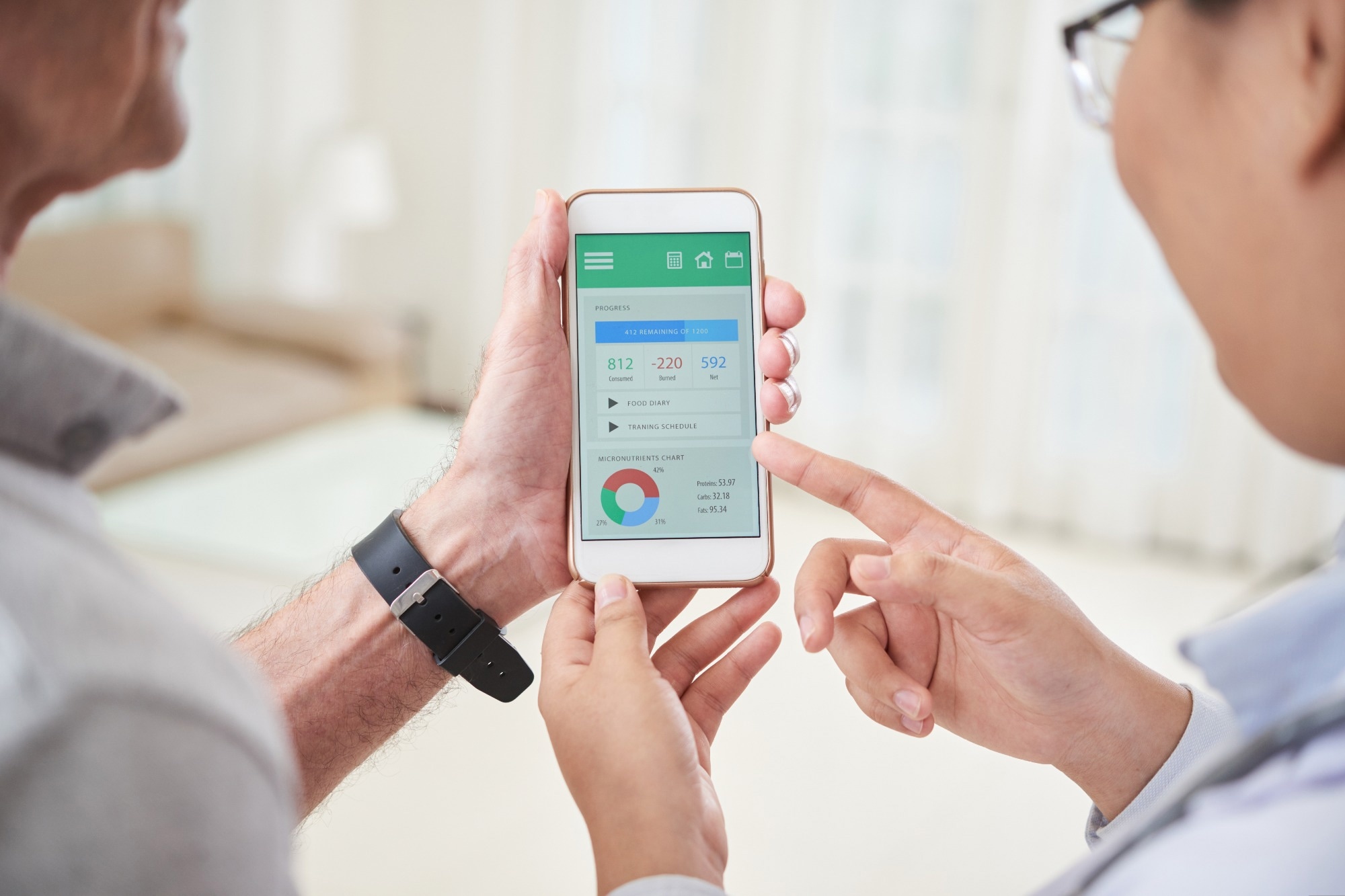They found that mHealth modestly improved the dementia risk score in the test group compared to the control group, with high adoption and active participation rates, although the implementation was challenging.
 Study: Prevention of dementia using mobile phone applications (PRODEMOS): a multinational, randomised, controlled effectiveness–implementation trial. Image Credit: Dragon Images/Shutterstock.com
Study: Prevention of dementia using mobile phone applications (PRODEMOS): a multinational, randomised, controlled effectiveness–implementation trial. Image Credit: Dragon Images/Shutterstock.com
Background
The prevalence of dementia is expected to exceed 150 million by 2050, primarily affecting low- and middle-income countries and those with a lower socioeconomic status in high-income countries.
Up to 40% of dementia cases are linked to modifiable risk factors like hypertension, diabetes, obesity, and smoking, which remain prevalent in underserved populations. Multidomain interventions targeting these factors have shown mixed results in randomized controlled trials, often involving healthier populations in high-income settings.
mHealth interventions via smartphone applications could reach underserved, high-risk populations effectively and cheaply. However, a 2022 systematic review found inconclusive evidence on the efficacy and implementation success of mHealth interventions for dementia prevention, particularly in these underserved groups.
Therefore, in the present trial, researchers developed and tested a coach-supported mHealth intervention to reduce dementia risk in high-risk, underserved populations.
About the study
PRODEMOS (short for “prevention of dementia using mobile phone applications”) is a multinational, randomized, open-label, blinded endpoint clinical trial using a type II hybrid effectiveness-implementation design to assess a 12–18-month coach-supported mHealth intervention for reducing dementia risk in underserved populations in the United Kingdom (UK) and China.
The trial involved 1,488 participants aged 55–75 years, of any socioeconomic status in China and low socioeconomic status in the UK, with at least two dementia risk factors.
The following risk factors were considered: hypertension or hypertension medication use, dyslipidemia, diabetes, obesity, depression, current smoking, and cardiovascular disease.
The participants were randomized into two groups, the intervention group (n = 734) and the control group (n = 754). The mean age of participants was 63 years, 40% were male, and the mean follow-up period was 16 months.
The intervention app facilitated self-management of risk factors with remote coaching, while the control app provided generic health information.
Primary outcomes included changes in CAIDE (short for Cardiovascular Risk Factors, Aging, and Dementia Study) risk scores and implementation metrics such as appropriateness, acceptability, coverage, adoption, sustainability, fidelity, feasibility, and costs.
Statistical analysis involved using ANCOVA (short for analysis of covariance), linear mixed-effects models, sensitivity analysis, and subgroup analysis. Due to coronavirus disease 2019 (COVID-19)-related delays, the study adjusted the intervention duration to 12–18 months and reduced the target sample size, optimizing participant count and person-months.
Results and discussion
As per the study, the intervention group showed a significant improvement in the CAIDE dementia risk score compared to the control group (-0.16 points, p=0.02).
While there were no significant differences in systolic blood pressure, total cholesterol, and body mass index (BMI), the intervention group exhibited reductions in physical inactivity, smoking, and uncontrolled risk factors.
Adherence to the intervention was high, with most participants setting goals, sending messages, and reading educational materials. Coaches reported that 79% of interventions were fully executed according to protocol.
The perceived appropriateness and acceptability were rated positively at 85% and 81%, respectively, with overall feasibility deemed fair, as reported by intervention participants and coaches. Additionally, the intervention was found to be cost-effective. No significant differences were observed in adverse events between the study arms.
Overall, the intervention effectively reduced dementia risk factors but encountered implementation challenges. The study's strengths lie in its cross-country design, enhancing generalizability, combined evaluation of effectiveness and implementation, substantial recruitment from socioeconomically deprived areas, and development of a user-friendly app through co-creation with target populations.
On the other hand, limitations of the study were low response rates, especially in the UK, potential technological inequalities, uncertainty about translating risk score changes to dementia incidence, reliance on self-reported data, and a possible selection bias.
Conclusion
In conclusion, the coach-supported mHealth intervention targeting dementia risk factors in low socioeconomic status populations in the UK and the general population in China shows modest effectiveness in reducing these risk factors.
However, whether this reduction will lead to dementia prevention remains uncertain and requires larger, longer-term studies. Implementation is feasible but challenging, particularly in reaching the target populations.
Given the small effect size and limited reach, especially in the UK, the overall population impact will likely be minimal.
Combining individual interventions with broader structural changes in the healthcare system and society is needed to reduce dementia risk for current and future generations significantly.